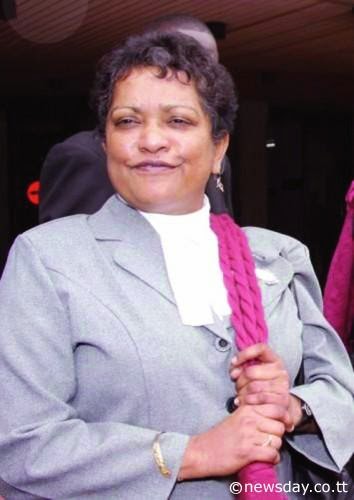Pan-Africanism in Barbados Education Reform Needed
One Caribbean Nation.
‘BACK TO BLACK’
PRESCOD CALLS FOR PAN- AFRICANISM IN EDUCATION REFORM
By Shanna Moore
The prime minister's special envoy for reparations and economic enfranchisement, Trevor Prescod, has called for a bold reimagining of Barbados' education system, urging policymakers to centre African civilisation and Pan-Africanist thought in the curriculum as part of the government's broader reform agenda, which includes abolishing the 11-plus exam and decolonising learning.
In an interview with Barbados TODAY, Prescod shared that without this reclamation, efforts to reform the education system would fall short of addressing its deeper flaws.
"Any true reformation or revolutionary changes in the education system must restore the presence of the civilisation of the African people, both in Africa and in the diaspora," he said.
"No other changes in the education system make any sense unless we can make that reclamation of who we are, let African people feel equally as proud about themselves as they feel about other people."
His comments come amid the government's efforts to overhaul the education system, including plans to abolish the common entrance examination.
The overhaul includes what education officials term as the decolonisation of the education system, including a shift in the curriculum from "remnants of a colonialeducation" towards celebrating heritage and cultural identity.
Prescod's comments also come as local groups join the global African diaspora in commemorating Kwanzaa, a week-long annual celebration of African culture, held from Boxing Day to New Year's Day.
He raised scepticism about the motivations and perspectives of those driving the reform process, noting that many of them have benefited from the traditional system they now seek to change.
"I've heard a lot about reforms from many governments, from many ministries. Many of the people who talk about these reforms are beneficiaries of the same traditional system," he said.
Prescod further spoke on how the existing education system perpetuates social stratification through disparities in resources and teacher assignments among schools.
He cited examples of individuals who have excelled despite systemic inequities, such as former principals of prestigious schools who hailed from less celebrated institutions, and highlighted what he noted as persistent structural issues that divide Barbadian society.
"It is unfortunate that these schools, as a result of the type of education and the kind of teachers allocated to work with specific schools, produce a class division, a social stratification among our people," he said. "The system still continues to produce this kind of stratification, and it is mirrored in the way people behave."
The reparations and economic enfranchisement representative further advocated for Pan-Africanist thought to be at the forefront of education reform, arguing that it is critical to decolonising the curriculum and fostering a sense of pride and identity among African-descended people.
"How come you're going to be doing this reform programme and Pan-Africanists don't play a major role in it?" he questioned. "The prime minister says she's a Pan-Africanist.
Some people say they are Pan-Africanists.
Some people say they don't know what Pan-Africanism is. But if we look at the trajectories we are witnessing, obviously there are influences of Pan-Africanist thoughts."
He raised events like the removal of Admiral Horatio Nelson's statue and the transformation of Golden Square Freedom Park, where the bust of National Hero Clement Payne now stands, as examples of Pan-Africanist influence in public life.
He also highlighted academic contributions from historians like Hilary Beckles, whose works such as Black Death and Persistent Poverty, according to Prescod, provide essential context for understanding systemic inequities and reclaiming African heritage.
Urging policymakers to engage the public in a meaningful dialogue about the nature and goals of education reform, he stressed the need for transparency and inclusivity, noting that the voices of educators, parents, and Pan- Africanist thinkers should be reflected in the new curriculum.
“Reform is not just something to feel about. We’ve got to ask: What are the changes? Engage the public in a serious debate,” he said. “Let’s see precisely what the educated public feels ought to be mirrored or reflected in the reformed documents that you call a change in the curriculum.” shannamoore@barbadostoday.bb
Barbados Today Saturday , December 28th 2024.



Comments